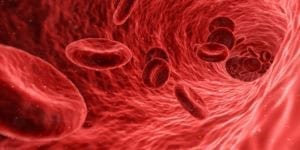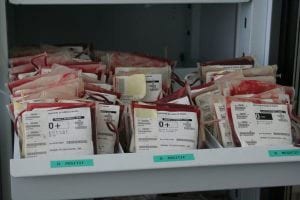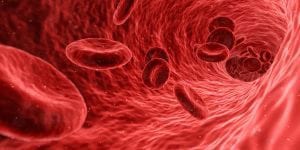Hereditary Hemorrhagic Telangiectasia (HHT)
What is hereditary hemorrhagic telangiectasia?
Hereditary hemorrhagic telangiectasia (HHT) is a disorder of the blood vessels, passed by heredity, that causes excessive bleeding. HHT can lead to the development of misformed blood vessels, called telangiecstaes or arteriovenous malformations (AVMs) depending on severity. Such vessels can form in a variety of areas throughout the body including: skin, brain lungs, liver, and intestines. HHT is caused by mutation in one of several genes that control blood vessel development and is passed in an autosomal dominant pattern.
Other names for HHT include:
- Osler-Weber Rendu syndrome
- Rendu-Osler-Weber syndrome
- ORW Disease
What are the symptoms of hereditary hemorrhagic telangiectasia?
HHT can present with a variety of different symptoms across patients depending on the specific gene mutation causing it. The most common first symptom is recurring nosebleeds. Telangiectasia of the skin, or the development of malformed blood vessels on the skin, is also common.
What causes hereditary hemorrhagic telangiectasia?
HHT is inherited through an autosomal dominant pattern. This means that though HHT is uncommon in the general population, it has a 50% chance of being passed from an affected parent to that parent’s child. In rare cases, HHT may be caused by a spontaneous genetic mutation.
How is hereditary hemorrhagic telangiectasia diagnosed?
HHT is diagnosed through an extensive review of patient and family history, clinical exam, and imaging tests. Genetic testing is also a possible form of diagnosis.
Clinical examination will test for three of four symptoms including:
- Chronic nosebleeds without predictable cause
- Telangiecstases in the lips, mouth, fingers, and nose
- Telangiecstases or AVMs occuring in the lungs, brain, spine, live, or digestive tract
- Family history of HHT
Imaging tests that may be ordered include:
- Chest X-Ray
- Ultrasound
- MRI
- Bubble study
- CT scan
- Colonoscopy and upper endoscopy
What are the treatments for hereditary hemorrhagic telangiectasia?
No treatment for HHT currently exists. With careful management of symptoms, however, patients can live a near-normal life expectancy. Symptoms such as nosebleeds can be treated simply by stopping the bleeding and supplementing the body’s iron supply. AVMs are often treated through a process of surgical removal, or through embolization.
Where can I find out more about hereditary hemorrhagic telangiectasia?
Hereditary Hemorrhagic Telangiectasia (HHT) Articles



Outcomes Differ in Studies Conducted for Hereditary Hemorrhagic Telangiectasia (HHT)


Beta Blocker Fails to Stop Hereditary Hemorrhagic Telangiectasia-Associated Nosebleeds


Extreme Athlete Anthony Anzell Doesn’t Let His Hereditary Hemmorhagic Telangiectasia Slow Him Down





